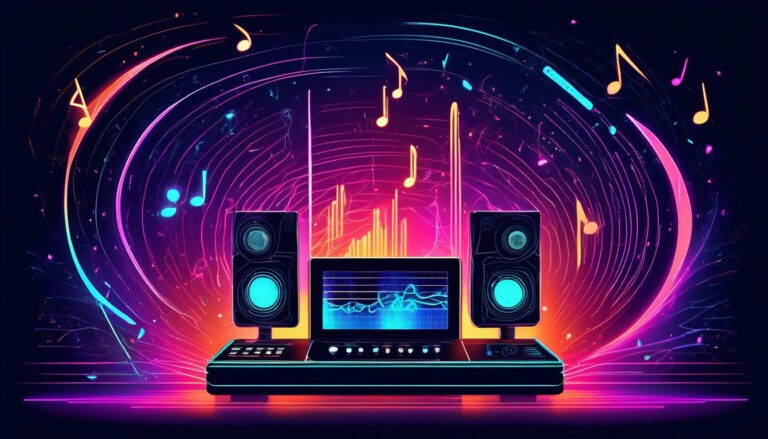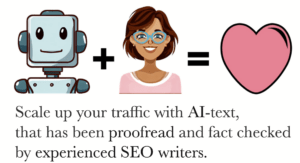In an age where technology’s evolving at an unprecedented pace, AI-generated music is carving out a revolutionary new soundscape that’s both exciting and transformative.
Leveraging complex algorithms and machine learning, AI is not just mimicking human creativity but pushing the boundaries of what’s musically possible.
From composing symphonies to crafting catchy pop tunes, these intelligent systems are challenging our traditional notions of artistry and musicianship.
As we delve into this fascinating intersection between technology and music, we’ll explore how AI is reshaping the industry, the ethical considerations it raises, and what it means for the future of sound.
Evolution of AI in Music
Over the past few decades, AI has dramatically transformed the music industry.
You’ve likely noticed how AI tools have evolved from simple beat-makers to sophisticated systems capable of composing entire pieces. Initially, these tools were basic, but advancements in machine learning and neural networks have allowed them to understand and replicate complex musical patterns.
Today, AI can analyze millions of songs, learning different styles, genres, and intricacies. This evolution has led to AI being a valuable assistant in music production, enabling faster and more efficient workflows.
You can now generate backing tracks, suggest chord progressions, and even master tracks using AI. The way AI has advanced, it’s clear that its role in music will only continue to grow.
Creative Possibilities of AI
With AI’s capabilities soaring, musicians and producers are discovering unprecedented creative possibilities. You can now experiment with sounds and styles that were previously unimaginable.
AI tools can generate endless variations of melodies, harmonies, and rhythms, enabling you to explore new musical territories. Imagine collaborating with an AI that understands your artistic vision and enhances your compositions.
You’re not limited by traditional instruments or human limitations anymore. AI can mimic any instrument or create entirely new sounds.
It can also analyze your previous works and suggest innovative ways to evolve your style. Whether you’re composing a film score or producing a chart-topping hit, AI offers a playground of endless possibilities, pushing the boundaries of what music can be.
Impact on Music Industry
AI-generated music is shaking up the music industry in ways that were once thought impossible. You’re now seeing AI composers creating entire symphonies, generating background scores, and even producing chart-topping hits. This technology is revolutionizing how music is made, distributed, and consumed.
Artists can collaborate with AI to explore new genres and styles, while record labels use it to discover fresh talent faster than ever. You’re witnessing a democratization of music production, where anyone with a computer can create professional-quality tracks. This shift is causing traditional barriers to crumble, allowing more voices to be heard.
However, it also raises questions about originality and intellectual property. The industry is rapidly adapting, but the full impact of this transformation is still unfolding.
Future of AI-Generated Music
As AI continues to evolve, the future of AI-generated music promises unprecedented creativity and innovation in the music landscape. You’ll witness AI composers pushing boundaries, creating genres that don’t exist yet.
Imagine personalized soundtracks tailored to your mood or AI collaborations with human artists producing unique, hybrid compositions. AI can analyze vast amounts of musical data, identifying trends and generating tunes that resonate with listeners on a deeper level.
You’ll experience music that adapts in real-time to your environment or activities, enhancing everyday life. The technology will democratize music creation, allowing anyone to produce professional-quality tracks.
Embrace the future where AI and music intertwine, offering endless possibilities for both artists and listeners.
How do AI-generated music algorithms ensure originality and avoid plagiarism?
To ensure originality and avoid plagiarism, AI-generated music algorithms analyze vast datasets, identifying patterns and creating unique compositions.
They employ complex algorithms that prioritize creativity while adhering to copyright regulations.
What ethical considerations are involved in the creation and distribution of AI-generated music?
When creating and distributing AI-generated music, consider ethical implications like proper attribution, data privacy, and potential job displacement.
Stay mindful of the impact on artists, listeners, and the industry as a whole.
Are there any notable collaborations between human musicians and AI in recent years?
Sure, you’ll be fascinated by the notable collaborations between human musicians and AI in recent years.
The infusion of technology with human creativity has led to groundbreaking music that pushes boundaries and sparks innovation.
Conclusion
In conclusion, AI-generated music is revolutionizing the way we create and experience music. With its evolving capabilities and creative possibilities, AI is reshaping the music industry and opening up new avenues for artists and listeners alike.
As we look towards the future, the potential for AI to continue pushing boundaries and expanding the soundscape of music is truly exciting.
Embrace the journey into this new era of music creation and innovation with AI at the helm.





